The Redmi Note series has been able to carve out the interest of users over the last few years, due to an exceptional quality / price ratio, and for some thick features that have always characterized each exponent of the line up.
The latest addition is the Redmi Note 9s, which among its outstanding specifications boasts a rear quad camera, a selfie camera cut out inside the display, and a 5020 mAh exhibition battery. That's why it's still a good choice, albeit without hitting the peak.
Let's start with the design. Nice, but massive. It will also be the fault of the weight, 209 grams , as well as of the rear camera. Xiaomi Redmi Note 9S combines symmetry with the cleanliness of its lines. Flashy, also due to the bright colors, which will certainly attract a younger audience.
The bezels are optimized, albeit not to the maximum, especially on the bottom, where the edge is slightly more pronounced than on the rest of the sides. Absent the notch , due to a selfie camera cut out inside the screen. Even in this case, however, the sensor does not go too unnoticed, due to a more pronounced black border than usual.
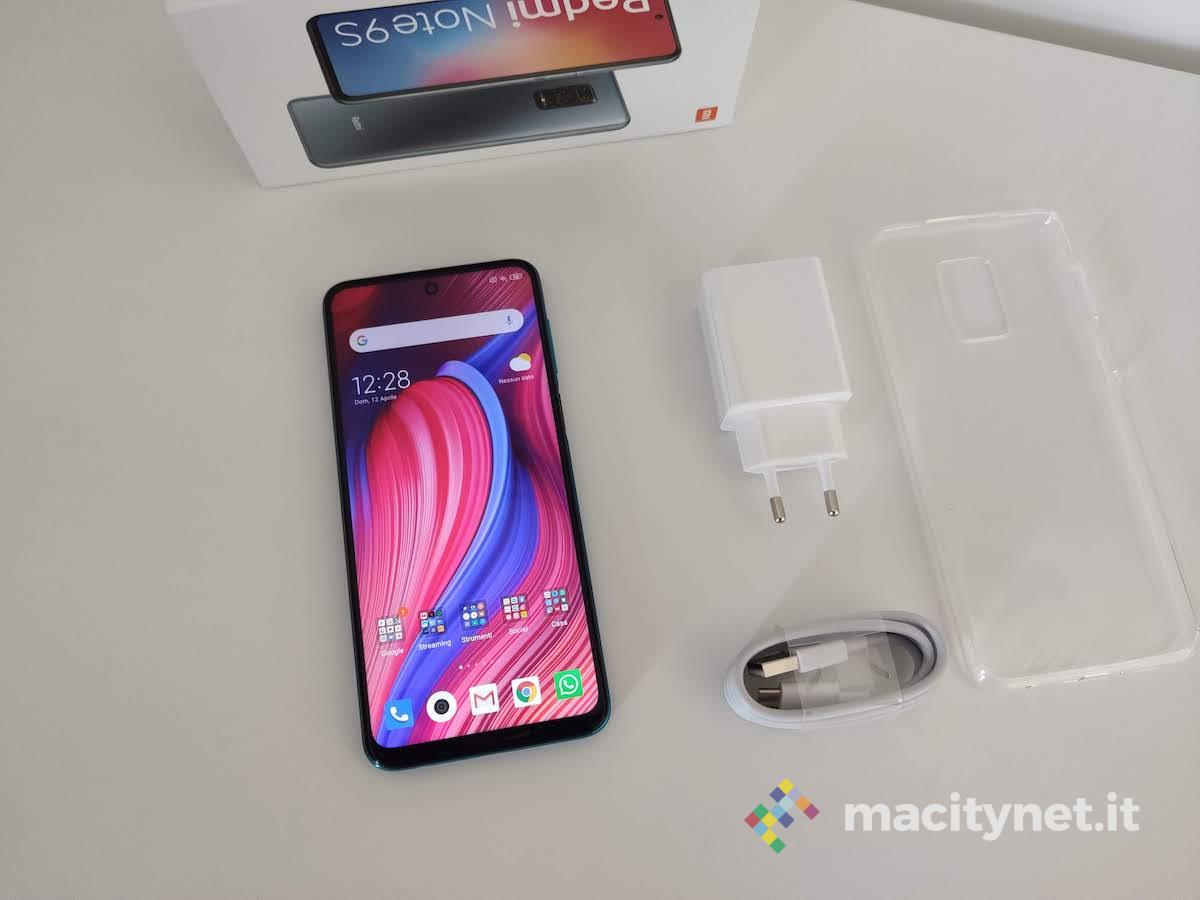
Beyond the size of the rear camera compartment, however, the design on the back is not bad at all, indeed it is particularly clean, also due to the absence of the fingerprint sensor , which is located on the right side, just below the volume rocker.
The writer is a fan of the lateral positioning of the sensor: on this terminal it can be reached perfectly when you hold it in your hand, and is among the most precise and reactive of the entire panorama.
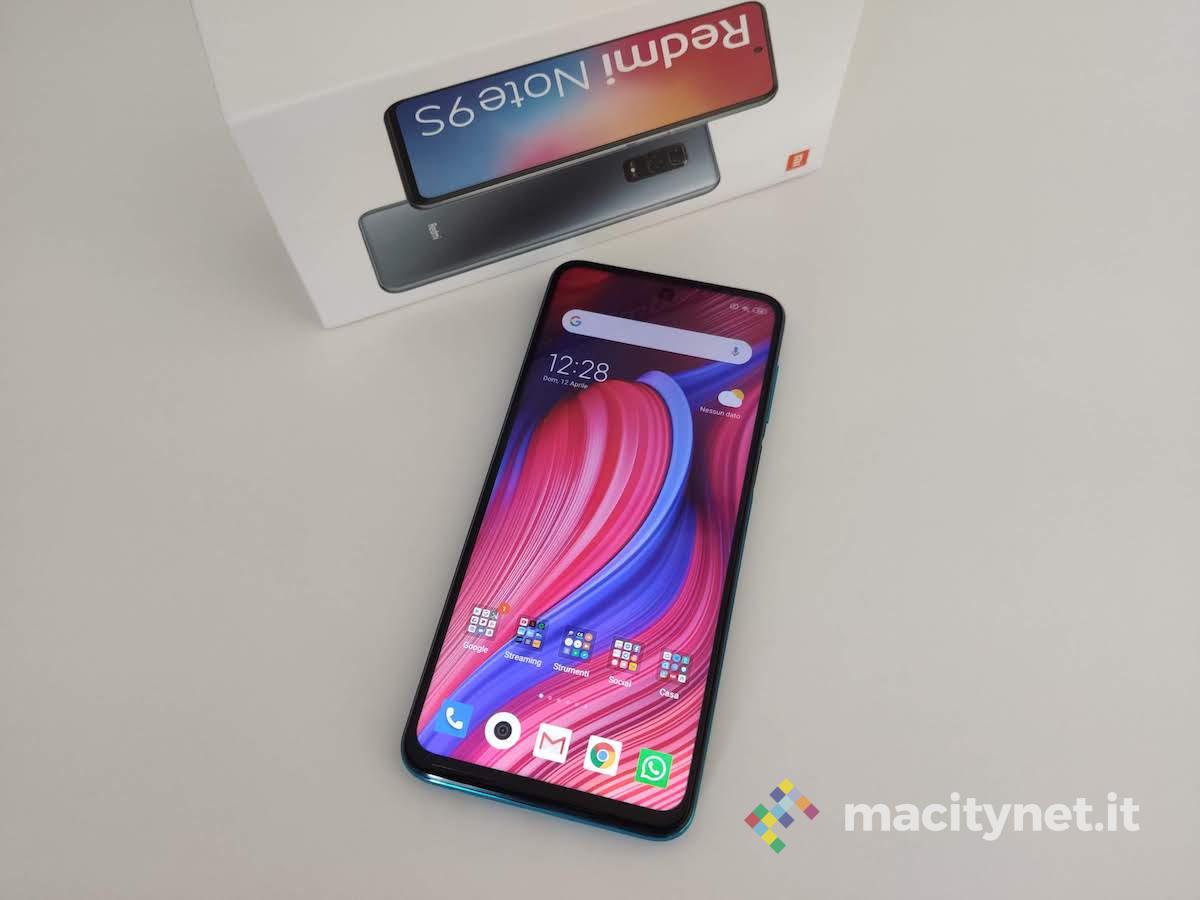
The terminal is made of plastic and in the lower edge houses a USB-C port , the main microphone, the mono speaker, together with the old and expensive headphone jack 3.5 mm .
Really appreciable is the IR sensor , which allows the smartphone to work as a remote control, a function no longer present on other devices, but which still proves to be of great help.
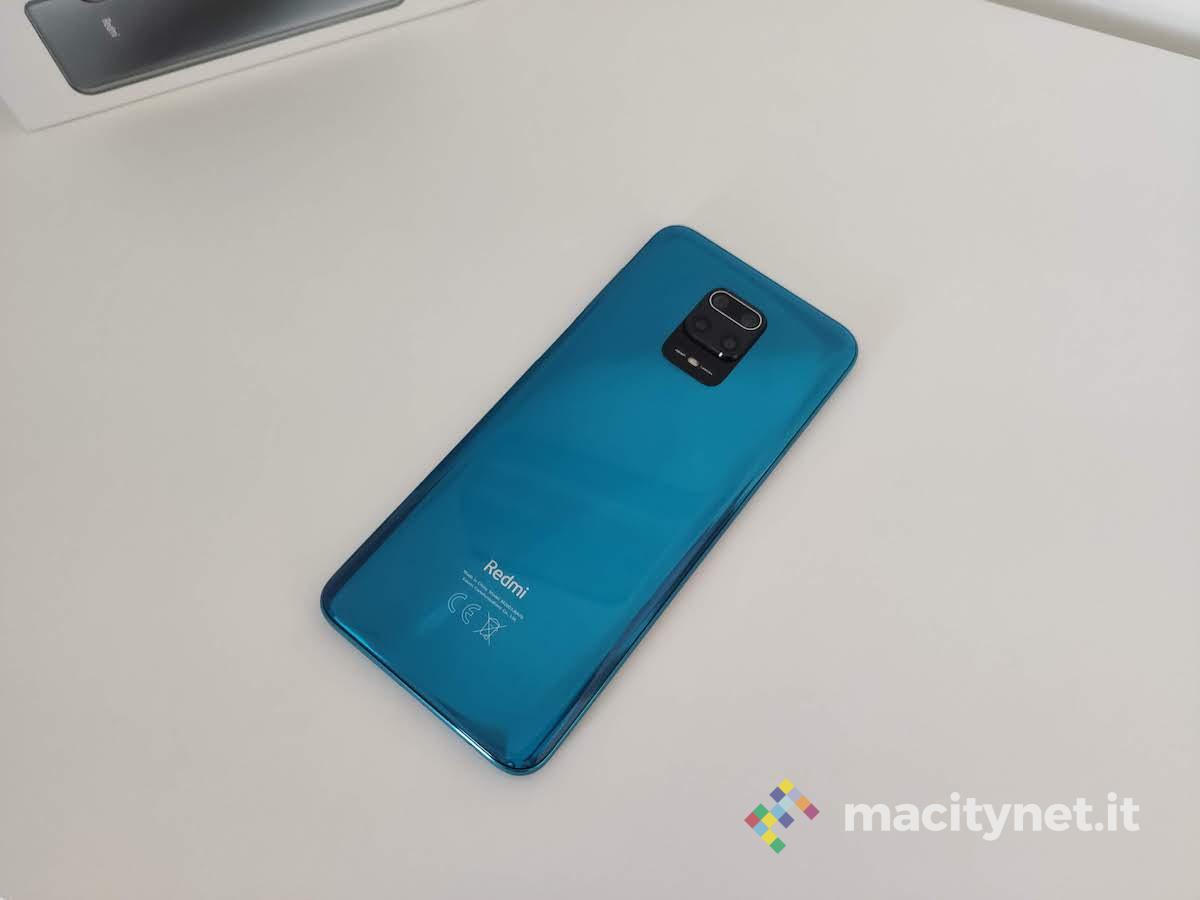
On the left side there is the SIM compartment that can simultaneously accommodate two SIM cards or a SIM card and a MicroSD memory card. There is also an unexpected addition, a small white notification LED, embedded in the upper edge, although it is not too visible.
Display
The display has a diagonal of 6.67 inches , with resolution 1080 x 2400 , with a pixel density per inch of 395 ppi , naturally 16 million color IPS LCD technology .
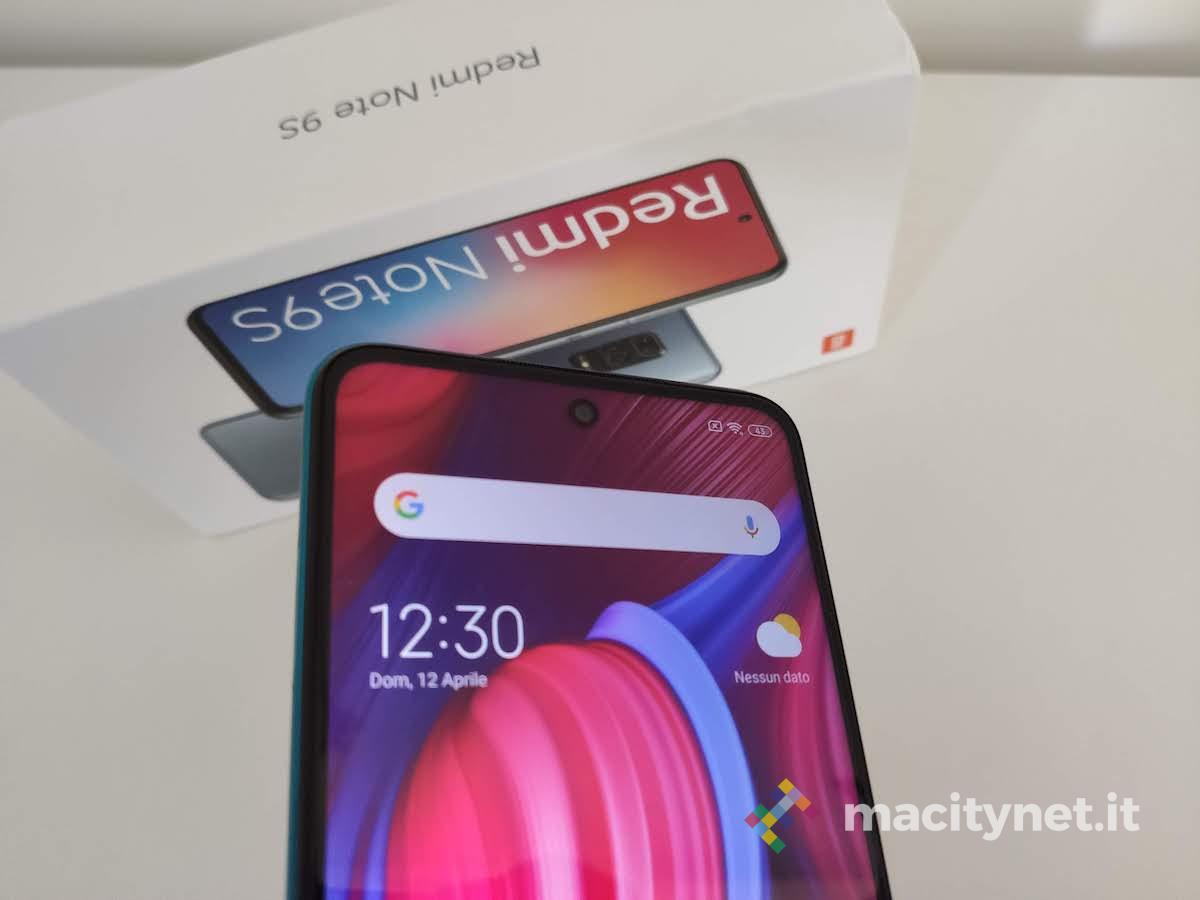
The display of the Redmi Note 9S is well done, with more saturated colors than the average that the market offers, even if it seems to have a slightly lower brightness, which all in all does not feel too much, because it is still well readable in daylight.
The selfie camera of the Redmi Note 9S, as already mentioned, is surrounded by a black border that most likely prevents the display backlight from causing interference when shooting. In fact, the photos, as we will see later, are very clear, but the border could perhaps have been optimized even more.
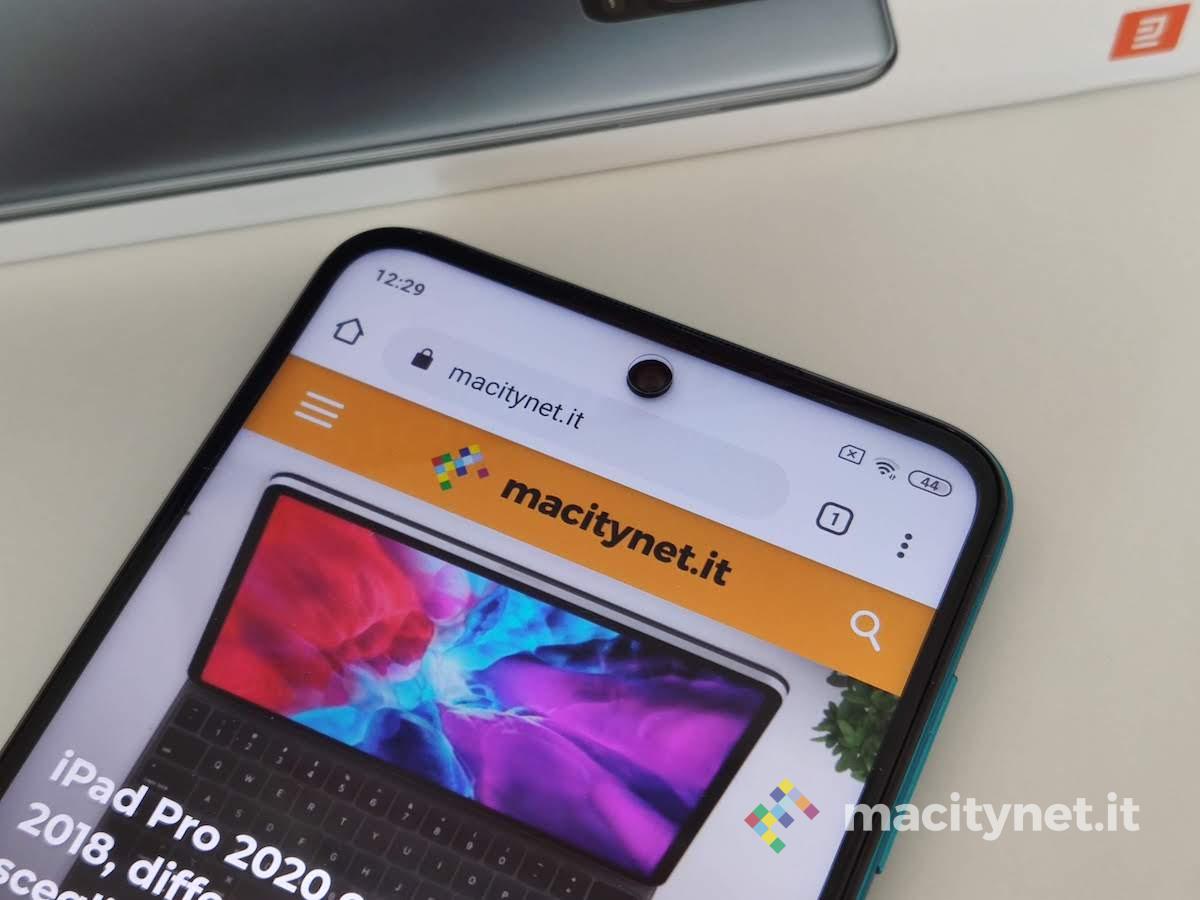
Being a medium range, the display of this terminal remains anchored to a frequency of 60 Hertz, so the moving images are certainly not the most fluid possible, especially if you use video games expecting a maximum yield.
The display does not have any type of HDR certification and in fact it is not the best panel around to enjoy Full HD series and movies on Netflix or similar services. some burrs do not seem to be missing. Nothing, however, that could affect the value for money.
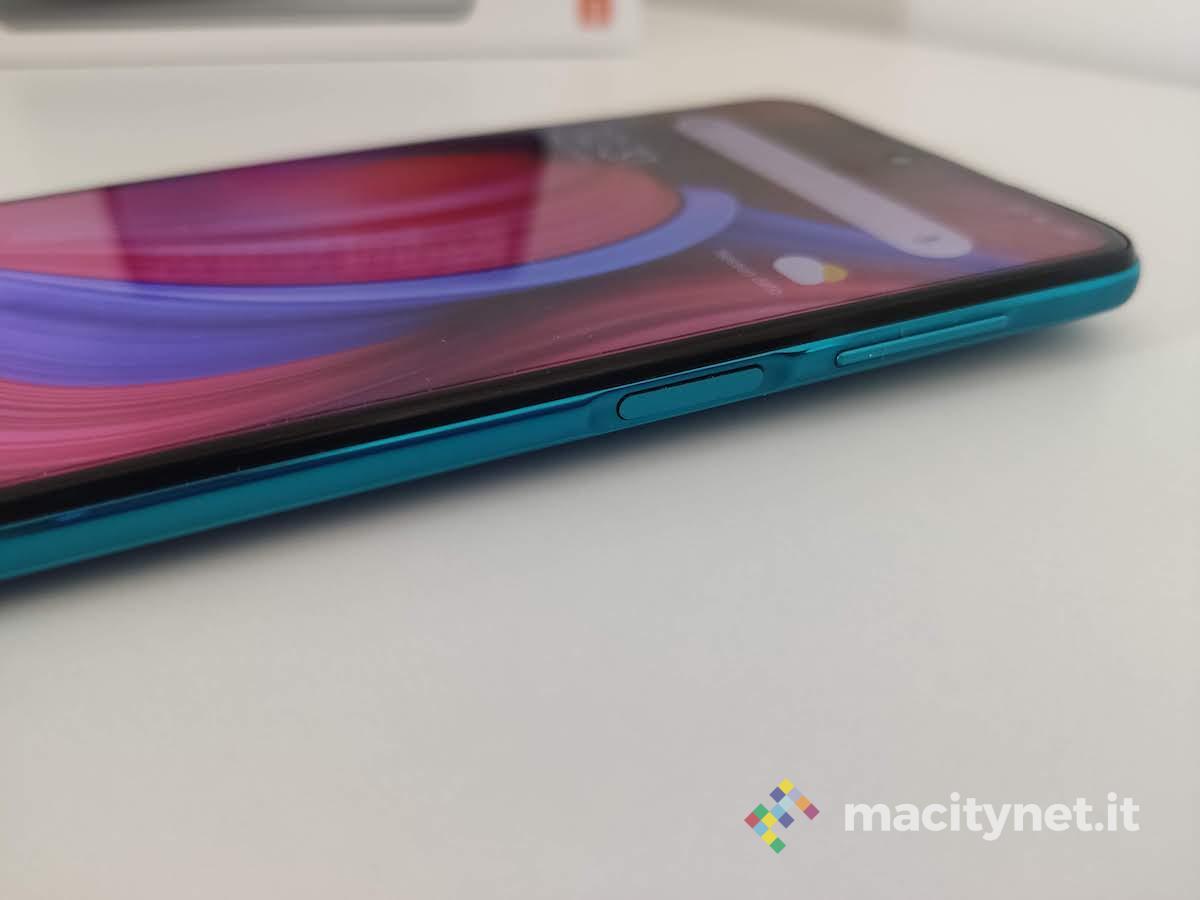
Performance
From the point of view of performance, Redmi Note 9S is powered by the Qualcomm Snapdragon 720G processor, introduced only a few months. This is a processor that has some minor improvements over last year's version 730, including a higher clock speed.
It may be that it is a still young processor, it may be that the operating system is not perfectly optimized, but we have found some micro lag, especially in the scrolling of the pages, for example in the Google feeds present on the homepage and accessible via slide to the right.
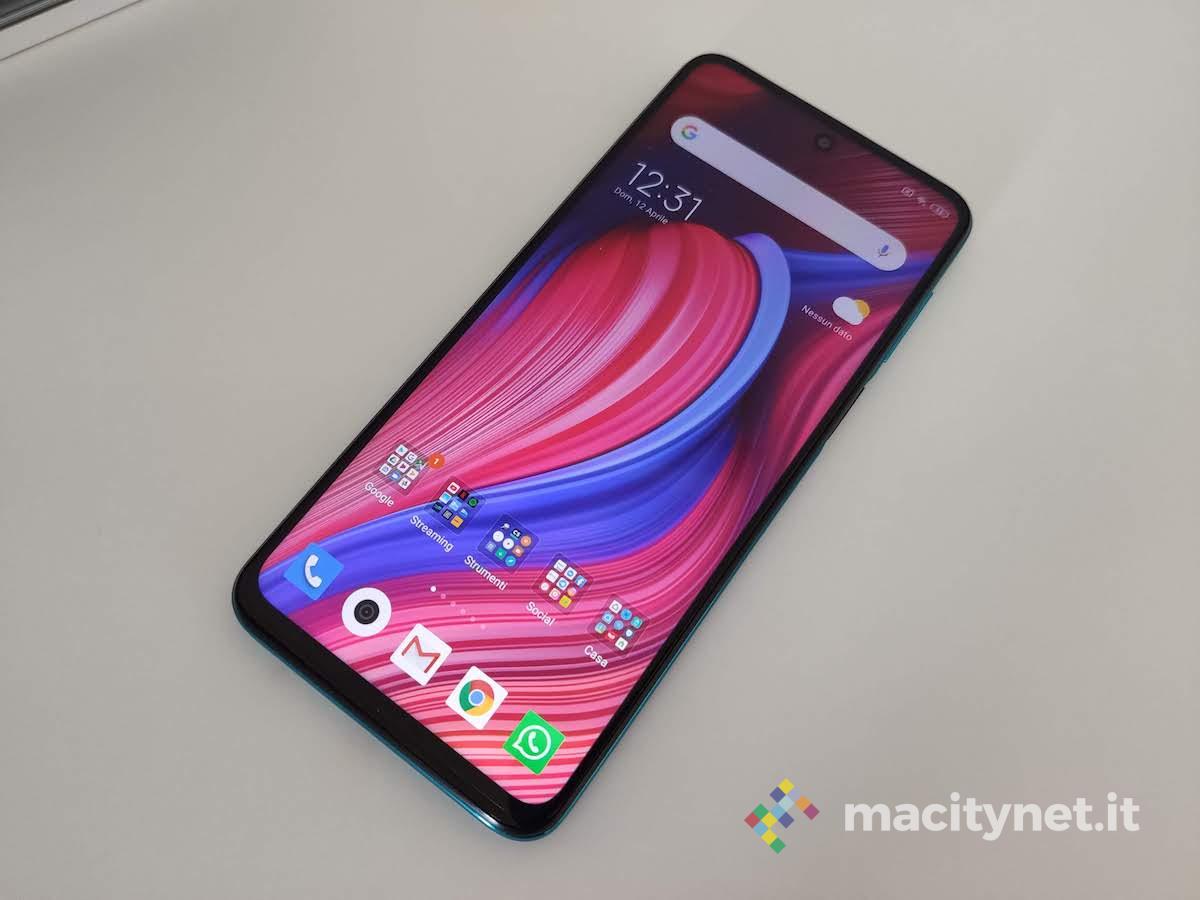
Also during the scrolling of this feed there are some unexpected application closing errors, even of apps that in fact are not even open in the backgroud. While shooting with the camera, we noticed some blockages in shutter pressure.
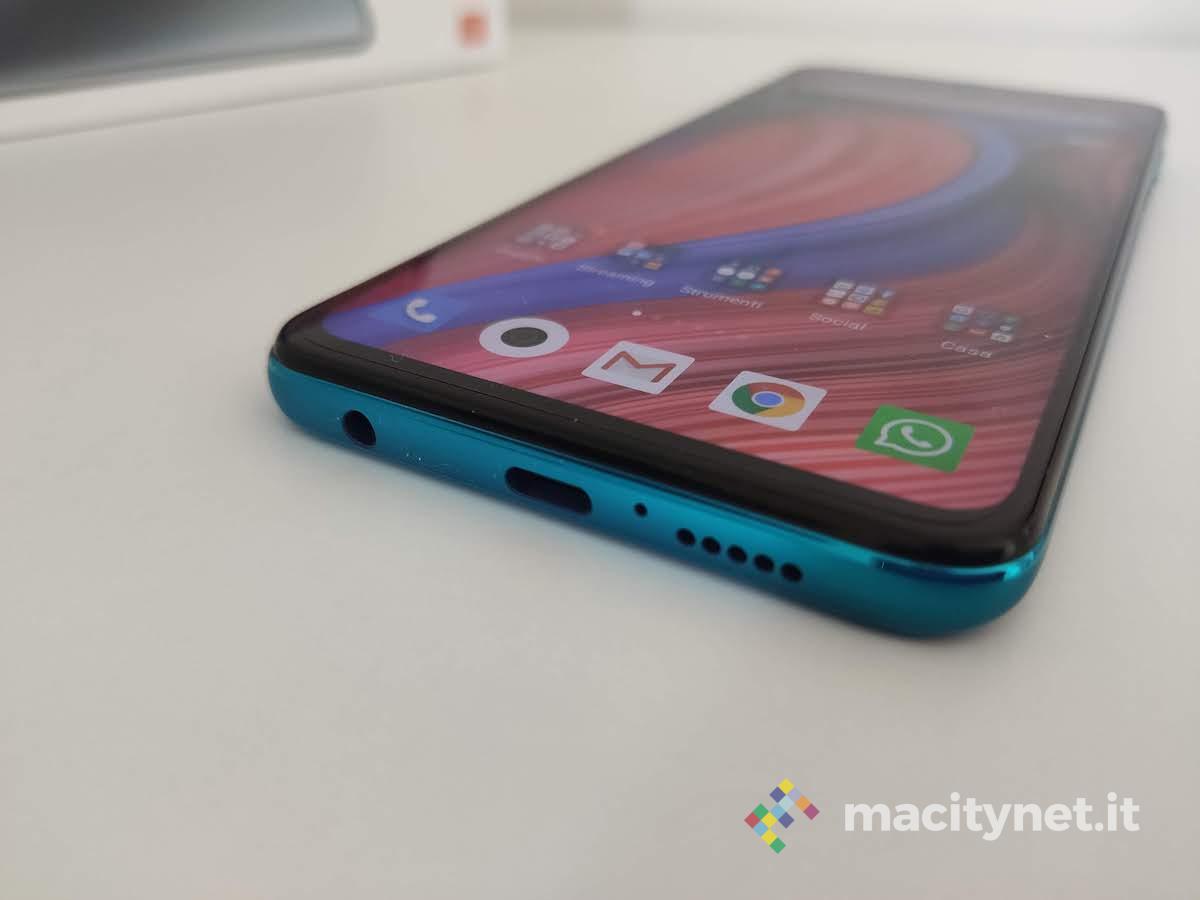
Beyond these bugs, which may also be due to a lack of software optimization, and small youth problems, Redmi Note 9S seems to be able to have its say in the mid-range, with average performance.
The version we are testing is the one with 4GB of RAM, which is probably just barely enough. The advice is to focus on the 6GB version of RAM, for a handful of euros more.

As for the storage speed, Redmi Note 9S is not afraid of anyone's competition. It remains within the market average, tending to perform well, so writing speed is not a problem.
For gaming performance, the chipset supports titles such as PUBG mobile well, and does not fail to run correctly the vast majority of mobile titles on the store, even if as already mentioned it lacks support for HDR gameplay.
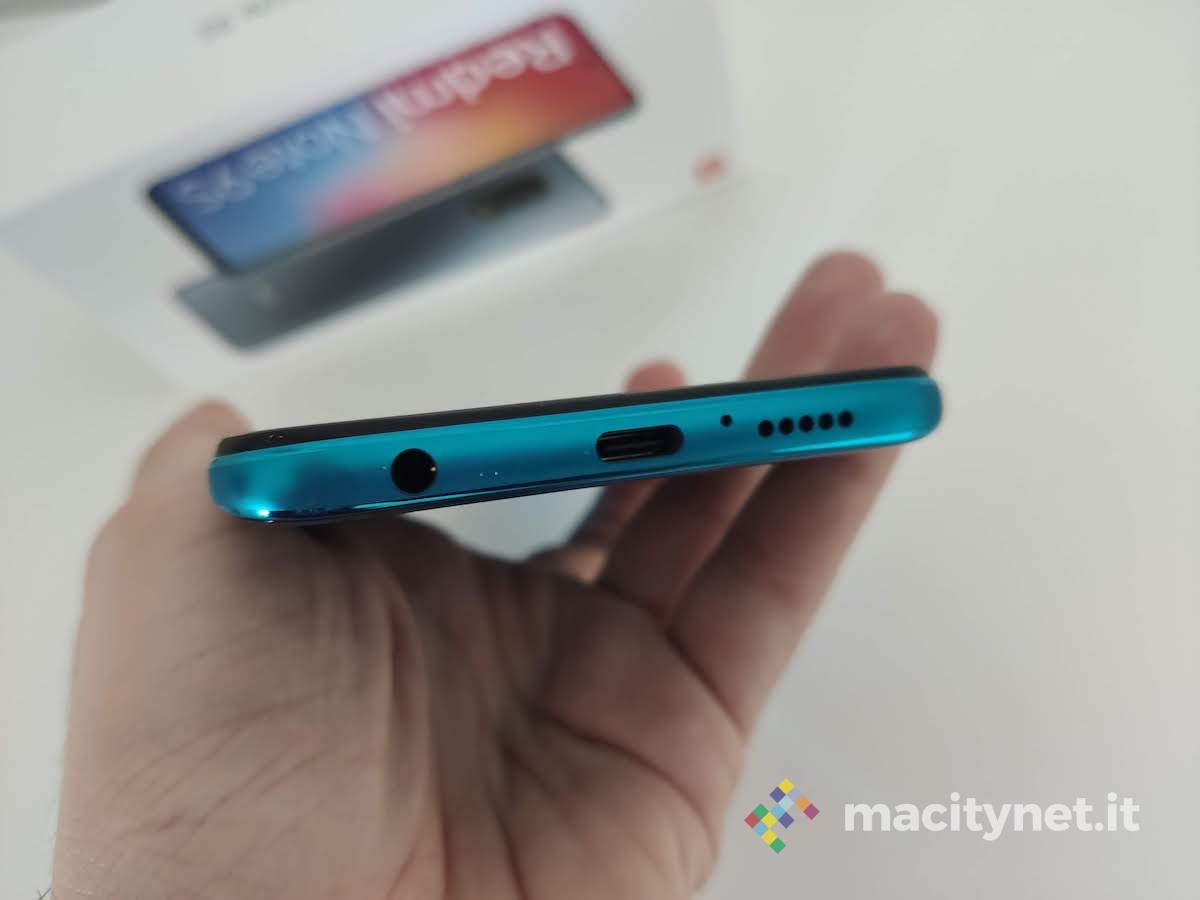
What has surprised us positively since the opening, however, is the vibration. Xiaomi has added a new vibration engine that results in much more comfortable tactile feedback: there are different vibration profiles associated with different actions such as typing, navigation gestures or interactions with applications, although unfortunately there is no such thing in games. are vibrations that can be activated.
Cameras
Redmi Note 9S is equipped with a configuration quad camera in which Samsung's 48 megapixel ISOCELL GM2 sensor, f / 1.79, 1.6 μm pixels, 7 lenses, PDAF + EIS , flanked by an ultra-wide 119 ° f / 2.2 8-megapixel sensor, a 5-megapixel macro AF sensor (2cm-10cm) and a 2-megapixel depth sensor.
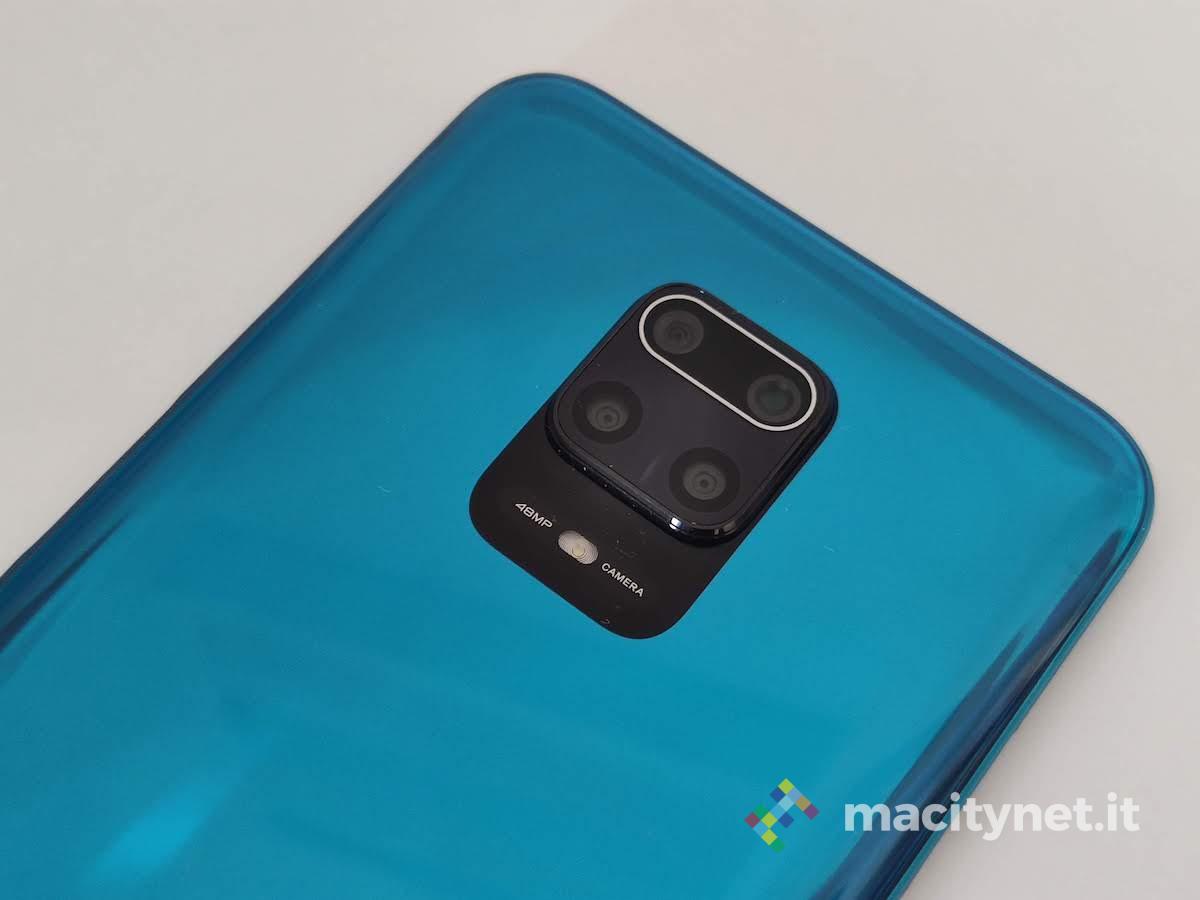
The primary camera takes good pictures outdoors and in optimal light conditions. Here the colors are rendered very well and the brightness is satisfactory. The performance, as is normal, is reduced indoors, in low light conditions, where the images seem to lose detail. The sharpness, in the sunlight, is satisfactory and overall one cannot but be satisfied with the rear camera set, considering the price range.

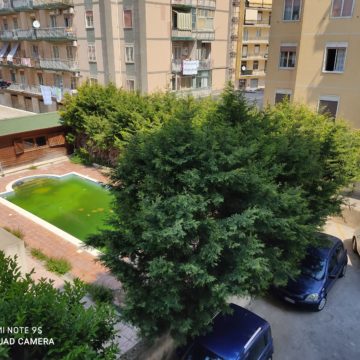


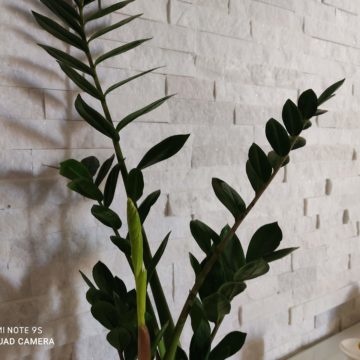

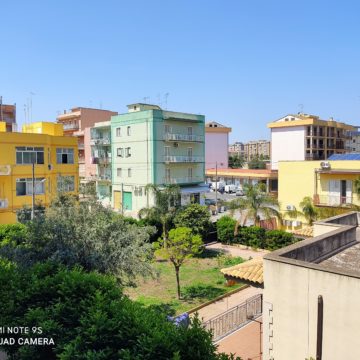



Good night mode, which captures light well and returns balanced images. The wide-angle shooting is not among the best on the market, but even in this case the results are certainly acceptable, always taking into account the list price.
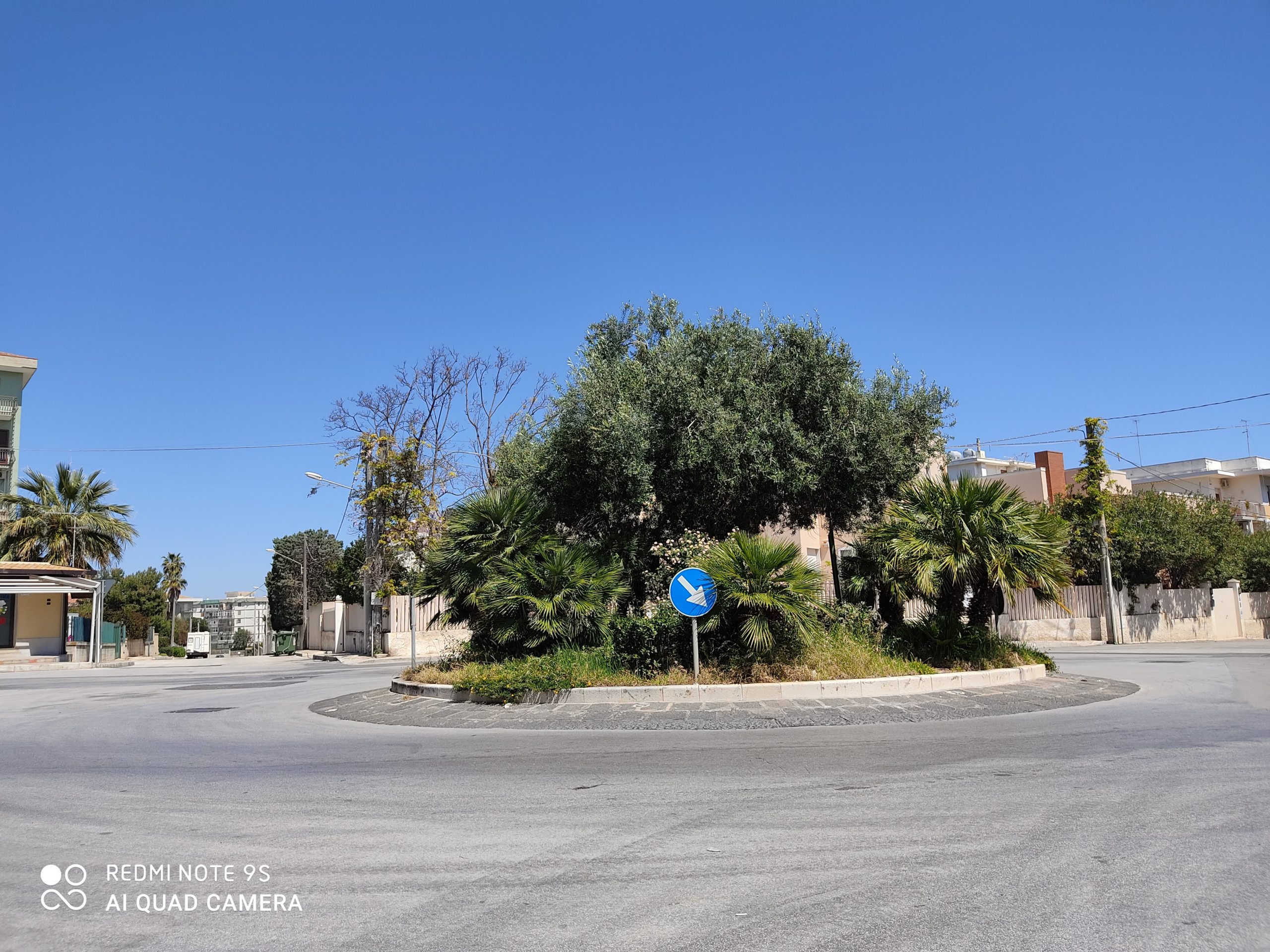

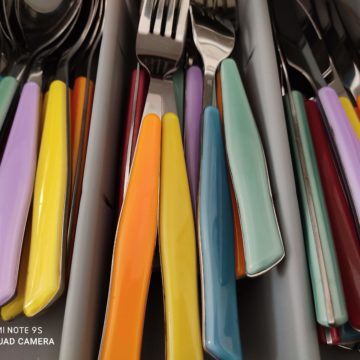
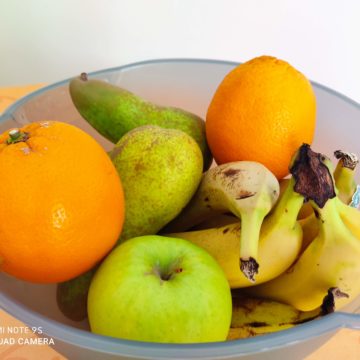
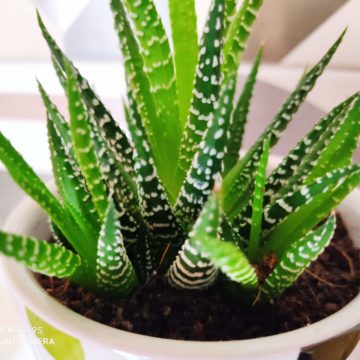

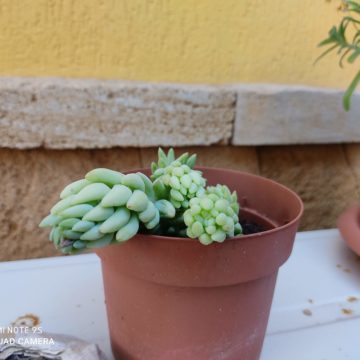
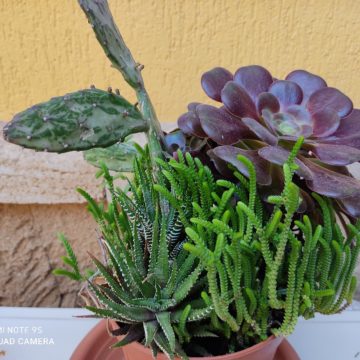
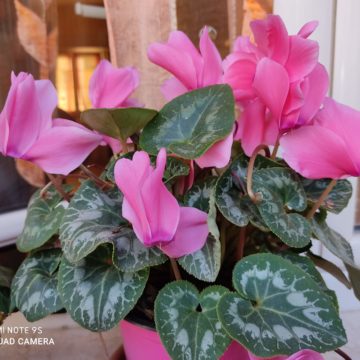

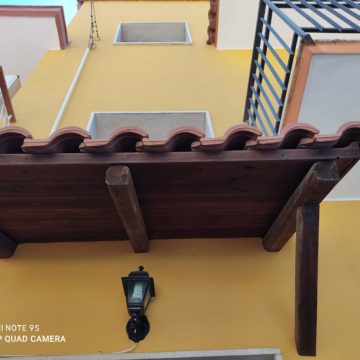
Good macros, with more than satisfactory results, with appreciable details. Likewise, the Bokeh effect and the selfie camera deserve praise, which returns excellent colors and works very well on skin tones.
Operating system
Net of a few bugs to be solved and the multitude of pre-installed apps (which can be deleted without problems), Redmi Note 9S offers a system based on Android 10, integrated with the customized MIUI 11 interface and the February security patches.
Pleasant presence of the Google news feed in the side home, as well as the dialer that detaches itself from the one appreciated on other Xiaomi terminals, to more recall that of Google.
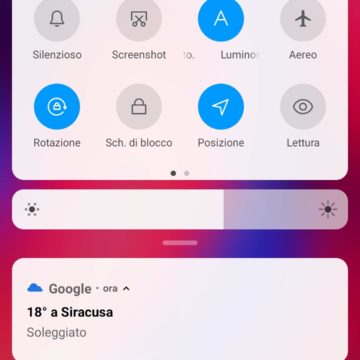


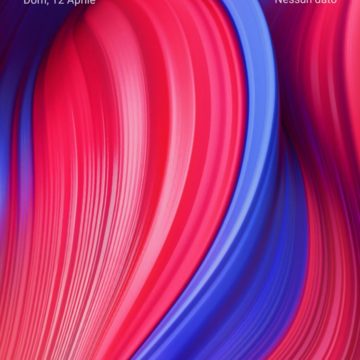
There are no customizations other than the usual, while there is for example the dark mode, which can be set to automatic, so as to change according to the time in which the terminal is used. Present battery saving systems, downloadable themes and Google wellness settings. There is also the option to clone applications.
Battery
Redmi Note 9S has a 5020mAh super battery that lasts all day and far exceeds expectations. Not surprising, considering the nominal power. The device does not offer a wireless charging option, but it does support fast charging, which allows you to go from 10% to 90% in just an hour and a half. Slower, however, the last ten percent of the recharge.
Conclusions
Redmi Note 9S is a good terminal, which certainly does not excel, as is normal for a smartphone worth just over 200 euros. From an aesthetic point of view, very valid, even if you will certainly have to deal with a massive terminal. The Aura Balance coloring is very beautiful.
Average performance, net of some small bugs to be corrected, and good photographic sector for the price range. A terminal for everyone, certainly aimed at young people, but which could also satisfy a larger audience, which needs an Android smartphone with all the Google services pre-installed, but without spending considerable amounts.
PRO
VERSUS
At the moment the 4 + 64GB version of RAM can be purchased for about 208 euros directly at this address. From here, instead, you buy the 6 + 128 GB version.





